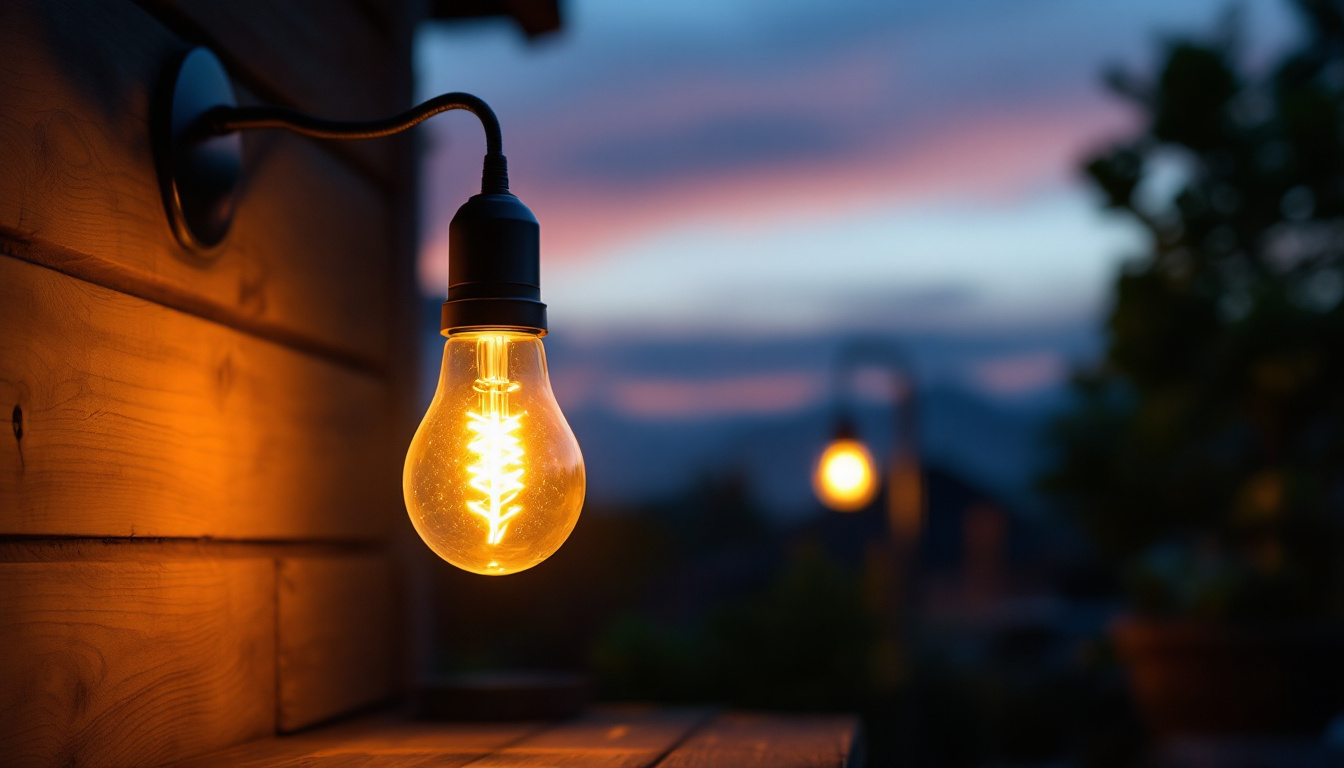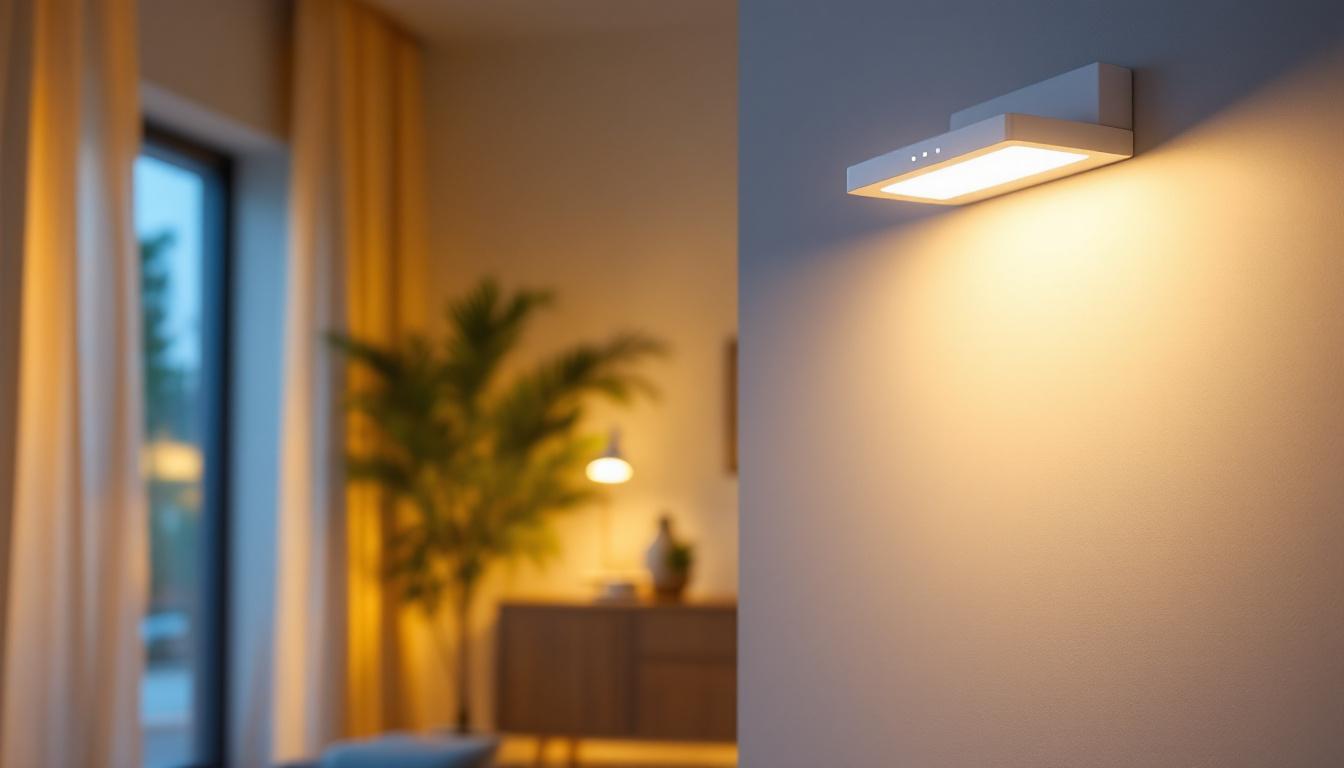
In the ever-evolving landscape of lighting solutions, solar bulb lamps have emerged as a game-changer for contractors seeking to enhance project efficiency. These innovative lighting solutions not only provide illumination but also offer a sustainable alternative to traditional lighting methods. This article delves into the various aspects of solar bulb lamps, exploring their benefits, applications, and the ways they can significantly improve the efficiency of lighting projects.
Solar bulb lamps harness the power of the sun to provide energy-efficient lighting. Equipped with solar panels, these lamps absorb sunlight during the day, converting it into electrical energy stored in batteries. When night falls, the stored energy powers the LED bulbs, illuminating the surroundings without relying on conventional electricity sources. This innovative technology not only promotes sustainability but also offers a practical solution for outdoor lighting needs, such as in gardens, pathways, and patios.
To fully appreciate the efficiency of solar bulb lamps, it is essential to understand their key components. These typically include:
Each of these components plays a crucial role in the overall functionality and efficiency of solar bulb lamps, making them a reliable choice for various lighting projects. Furthermore, advancements in technology have led to the development of solar bulbs with enhanced features, such as motion sensors and adjustable brightness settings, allowing users to customize their lighting experience according to their specific needs.
The operation of solar bulb lamps is relatively straightforward. During daylight hours, the solar panel absorbs sunlight and converts it into electrical energy. This energy is then stored in the battery, ready for use when the sun sets. Once darkness falls, the controller activates the LED bulb, providing illumination without the need for external power sources.
This self-sustaining mechanism not only reduces energy costs but also minimizes the environmental impact associated with traditional lighting methods. For contractors, this means more efficient project execution and the ability to offer clients sustainable lighting solutions. Additionally, solar bulb lamps are often designed to be weather-resistant, making them suitable for various outdoor conditions, from rainy climates to snowy winters. Their versatility allows them to be used in a wide range of applications, from illuminating backyards to enhancing security in commercial spaces.
Solar bulb lamps present numerous advantages that can significantly enhance the efficiency of lighting projects. Understanding these benefits is essential for lighting contractors aiming to optimize their offerings.
One of the most compelling reasons to incorporate solar bulb lamps into lighting projects is their cost-effectiveness. Traditional lighting systems often require extensive electrical infrastructure, leading to increased installation and maintenance costs. In contrast, solar bulb lamps eliminate the need for wiring and reduce labor costs associated with installation.
Moreover, the long lifespan of LED bulbs means that replacements are infrequent, further decreasing long-term expenses. By utilizing solar bulb lamps, contractors can offer clients a more budget-friendly lighting solution without compromising on quality or performance.
As the world increasingly prioritizes sustainability, solar bulb lamps stand out as an eco-friendly alternative to conventional lighting. By relying on renewable solar energy, these lamps help reduce carbon footprints and reliance on fossil fuels. This aligns with the growing demand for sustainable practices in construction and design.
Contractors who adopt solar bulb lamps can position themselves as environmentally conscious professionals, appealing to clients who value sustainability. This not only enhances the contractor’s reputation but also contributes to a greener future.
Solar bulb lamps are incredibly versatile, making them suitable for a wide range of applications. From outdoor lighting in residential areas to illuminating pathways, parks, and commercial spaces, these lamps can be adapted to various environments. Their portability allows for easy relocation, making them ideal for temporary events or construction sites.
Additionally, solar bulb lamps come in various designs and brightness levels, allowing contractors to choose the right solution for each unique project. This adaptability ensures that lighting needs are met efficiently and effectively.
The versatility of solar bulb lamps opens the door to numerous applications across different sectors. Understanding where these lamps can be utilized effectively is crucial for lighting contractors.
In residential settings, solar bulb lamps can enhance outdoor spaces by providing ambient lighting for gardens, patios, and driveways. Homeowners appreciate the convenience of solar lighting, as it requires minimal maintenance and operates independently of the electrical grid.
Furthermore, the aesthetic appeal of solar bulb lamps can elevate the overall look of a property, making them an attractive option for homeowners looking to improve their outdoor environments.
For commercial properties and public spaces, solar bulb lamps offer an effective solution for enhancing safety and visibility. They can be installed in parking lots, walkways, and parks, providing essential lighting without the need for extensive electrical installations.
Moreover, businesses that prioritize sustainability can benefit from the positive image associated with solar lighting. This can attract environmentally conscious customers and improve brand reputation.
Solar bulb lamps are also ideal for temporary events such as weddings, festivals, and outdoor gatherings. Their portability allows for easy setup and takedown, while the absence of electrical cords ensures safety and reduces trip hazards.
Additionally, the enchanting glow of solar bulb lamps can create a warm and inviting atmosphere, enhancing the overall experience for event attendees.
While solar bulb lamps offer numerous advantages, it is essential to consider potential challenges and limitations when incorporating them into lighting projects. Awareness of these factors can help contractors make informed decisions and ensure successful implementations.
One significant challenge associated with solar bulb lamps is their dependence on weather conditions. Solar panels require direct sunlight to charge effectively, and prolonged periods of cloudy or rainy weather can impact their performance. Contractors should assess the local climate and consider alternative solutions for areas with limited sunlight exposure.
Additionally, during winter months, shorter days may result in reduced charging time, potentially affecting the duration of nighttime illumination. Understanding these limitations can help contractors manage client expectations and plan accordingly.
Although solar bulb lamps can lead to long-term savings, the initial investment may be higher than traditional lighting solutions. Contractors should educate clients about the long-term benefits and potential return on investment associated with solar lighting to justify the upfront costs.
Providing a clear comparison of lifetime costs between solar and conventional lighting can help clients make informed decisions and appreciate the value of solar bulb lamps.
While solar bulb lamps generally require minimal maintenance, regular checks are necessary to ensure optimal performance. This includes cleaning the solar panels to remove dirt and debris that may hinder their efficiency. Contractors should educate clients on the importance of maintenance to prolong the lifespan of the solar bulb lamps and maximize their benefits.
To maximize the benefits of solar bulb lamps and ensure successful project execution, contractors should adhere to best practices during the planning and installation phases.
Before installing solar bulb lamps, conducting a thorough site assessment is crucial. This involves evaluating the amount of sunlight the area receives throughout the day, identifying potential obstructions such as trees or buildings, and determining the optimal placement for maximum exposure to sunlight.
Understanding the specific lighting needs of the area will also help in selecting the appropriate type and number of solar bulb lamps required for effective illumination.
Not all solar bulb lamps are created equal. Contractors should prioritize high-quality products that offer durability and efficiency. Researching reputable manufacturers and reading customer reviews can help in selecting reliable solar lighting solutions.
Investing in quality solar bulb lamps can lead to better performance, longer lifespans, and ultimately, greater client satisfaction.
Educating clients about the benefits and functionality of solar bulb lamps is essential for successful implementation. Providing information on how the lamps work, their maintenance requirements, and the long-term savings they can offer will help clients appreciate the value of their investment.
Additionally, offering guidance on the best practices for usage and maintenance can empower clients to make the most of their solar lighting solutions.
Solar bulb lamps represent a significant advancement in lighting technology, offering contractors a sustainable and efficient solution for various projects. Their cost-effectiveness, environmental benefits, and versatility make them an attractive option for both residential and commercial applications.
While challenges such as weather dependence and initial investment exist, contractors can navigate these issues by conducting thorough site assessments, selecting quality products, and educating clients. By embracing solar bulb lamps, lighting contractors can enhance their project efficiency, contribute to a greener future, and meet the growing demand for sustainable lighting solutions.
As the industry continues to evolve, the adoption of solar bulb lamps will likely play a pivotal role in shaping the future of lighting projects. Embracing this technology not only benefits contractors and their clients but also contributes to a more sustainable world.
Ready to elevate your lighting projects with the efficiency and sustainability of solar bulb lamps? Look no further than LumenWholesale for your lighting needs. We provide contractors with high-quality, spec-grade solar lighting solutions at unbeatable wholesale prices. With our extensive selection that meets the highest industry standards, you can trust that you’re getting reliable, high-performance lighting for every project. Plus, enjoy the convenience of bulk buying with free shipping, ensuring you get the premium lighting you need at the best value — without any hidden fees. Make the smart choice for your lighting projects and experience the best in wholesale lighting at LumenWholesale.

Discover the future of sustainable lighting with our comprehensive guide on solar tent lamps tailored for lighting contractors.

Explore the fascinating science of baseball stadium lighting and discover essential insights for lighting contractors.

Discover the pros and cons of flood light junction boxes for lighting contractors.

Discover how motion sensing indoor light fixtures boost efficiency, reduce costs by up to 30%, and enhance client satisfaction—lighting contractors, unlock your business potential today!.